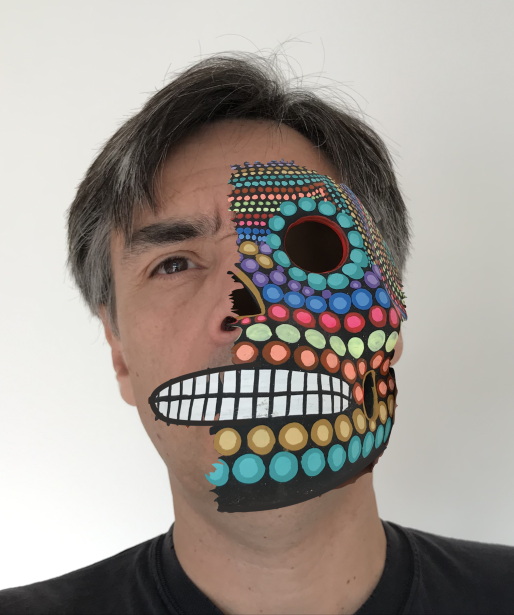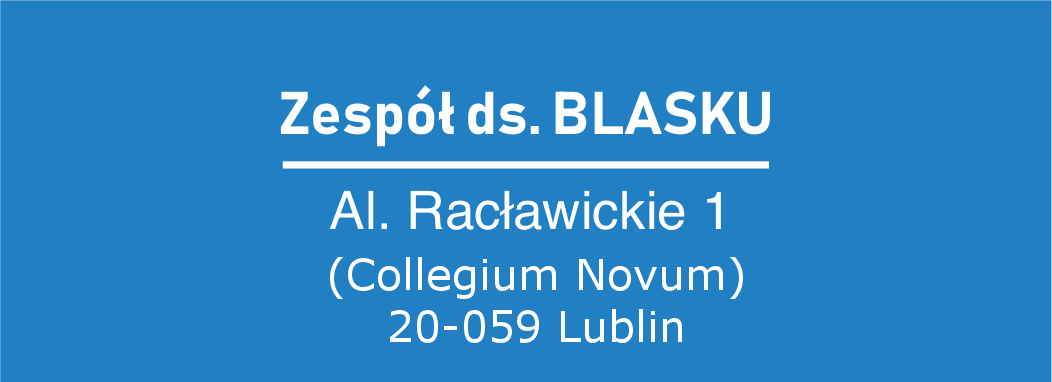Informator uniwersytecki
Mental Stimulations
Some believe that I'm creative... Do not worry, I have been called worse! Yet, an interesting observation came about years ago in a lab meeting. My (then) boss told me “you are very good at solving problems but not at defining problems”. That left me slightly mortified, how could I be a scientist without finding problems? Eventually, I figured out that since my childhood I have never sought out for troubles, troubles just keep "finding me". So, I guess I evolved to get creative to survive. In any case, creativity is not something you are born with, but something you can train, practice and perfectionate. The elements of creativity are: playful thinking, connecting things that seem unconnected, humour, discussion (with yourself and others) and embracing of failure as both educational and character building – keep smiling like I do (see image).
Creativity is in fact one of the very features unique to humans. Other features are:
- ballistics – no other animal seems able to take an object and precisely cast it to hit a target. Chimpanzees and bonobos, our closest living relatives, also pick objects and cast them to e.g. predators (leopards) but they never hit anything.
- language, while many other animals have modes of communication, and some have an impressive repertoire of sounds and imitations, like parrots and professors, there is nothing as complex as human language.
- Art, likely the concept of “making pretty things” for own pleasure might not exist in other animals, some animals do make colourful displays and decorative arrangements, the reasons are usually about attracting females… although now that I think about it, likely large part of art is also about attracting naked muses (male or female).
- Imagination, even in the absence of targets, audience or muses, we can still picture scenarios, people or situations straight from our heads – and naked muses too.
Creativity is the most powerful of mental tools we have, enabling us to plan ahead. We can even have a plan with multiple ends and different diversions. Yet, creativity and imagination can work against us, to make us afraid when the suspense of a grim outcome presents itself – failing, for example.

In Poland there is a concept “kombinować”, hard to translate, something like “bend an angle” or "finding ingenious solutions, often not quite legal, to the problem at hand." Strangely enough, while most Poles love to kombinować in their daily activities outside the workplace, they do not seem to use it in research – which is the very place where "unusual" solutions are constantly in need. Indeed, where it is most needed, and allowed, they play conservative, safe and by “the rules”. Even more odd is that there are no such rules, at most some guidelines and friendly suggestions. The fear of failing, partly substantiated by the obsession of this society to publicly humiliate those making a mistake and rubbing it on your face as often as possible, should not matter. In science, "failing" is the only way we learn and the very driver of discovery. In research it is simple: whatever works, works! Another reason for this conservativism might be the way we are taught since kindergarten. Schooling seems to be built in the establishing of facts, temporal memorising information until the day of final exam, and the active destruction of original approaches to solve problems. Something we have challenged, over the course of a few beers (see “Adolek on butterflies….”). In many ways, this is not much different to the Centre for Medical Simulation but instead of having dummies, phantoms, and actors as patients, we have imaginary friends (or foes), models and muses.
So, play around (A.K.A. experimenting) and try to have some fun. This is not about having equipment (“Where is all the equipment”), it is what you can do with it, and sometimes without. In fact, if you got a brain and 2 hands, then use them to “rekombinować” something special.
Happy "Dead’s day", one of the most colourful celebrations where I come from. A cheerful occasion that "yet another year we have cheated death, and a remembrance of those who did not". After 2 years in a pandemic, any opportunity to celebrate life is highly welcome. Another example why being afraid of failing is nonsense, at the very end we all will fail to live forever.
Adolek
Cheating death since Coco Chanel failed to do so
More info
Did you liked it?
Check Adolek's previous articles:
THE DECORATIVE SERVIETTE
ADOLEK ON BUTTERFLIES AND OTHER FLYING CREATURES
CURVA PELIGROSA
HYPOTHESIS-DRIVEN RESEARCH
DO NOT LET ANYBODY SHATTER YOUR DREAMS
WHERE IS ALL THE EQUIPMENT?
A LIFE IN SCIENCE







